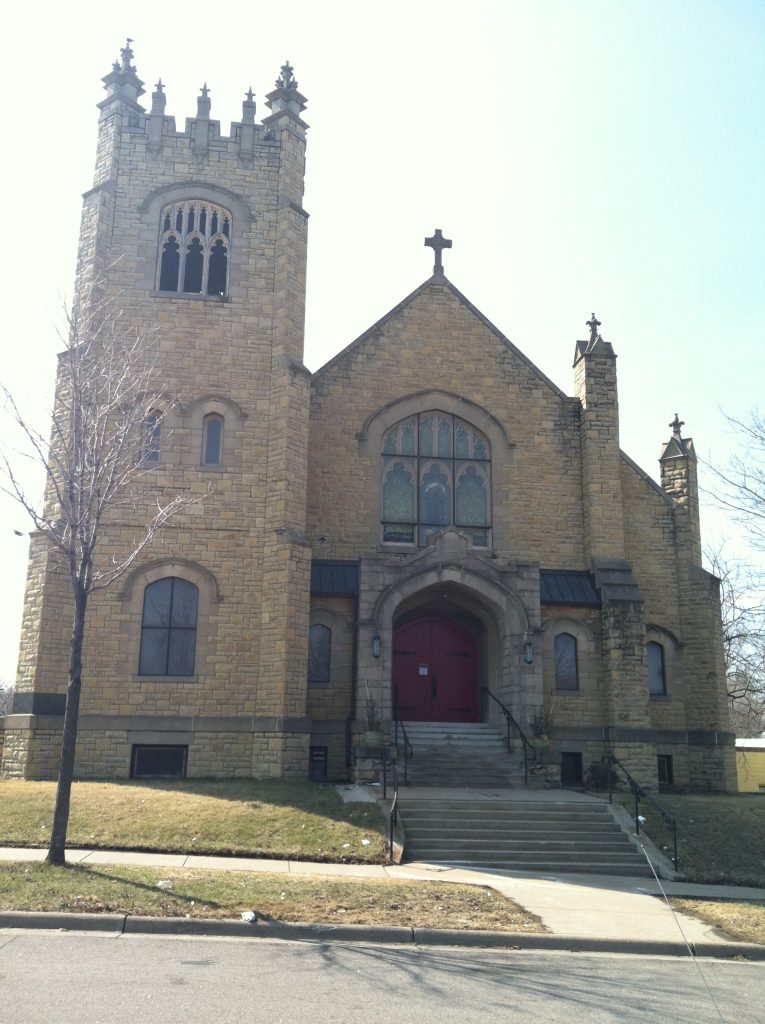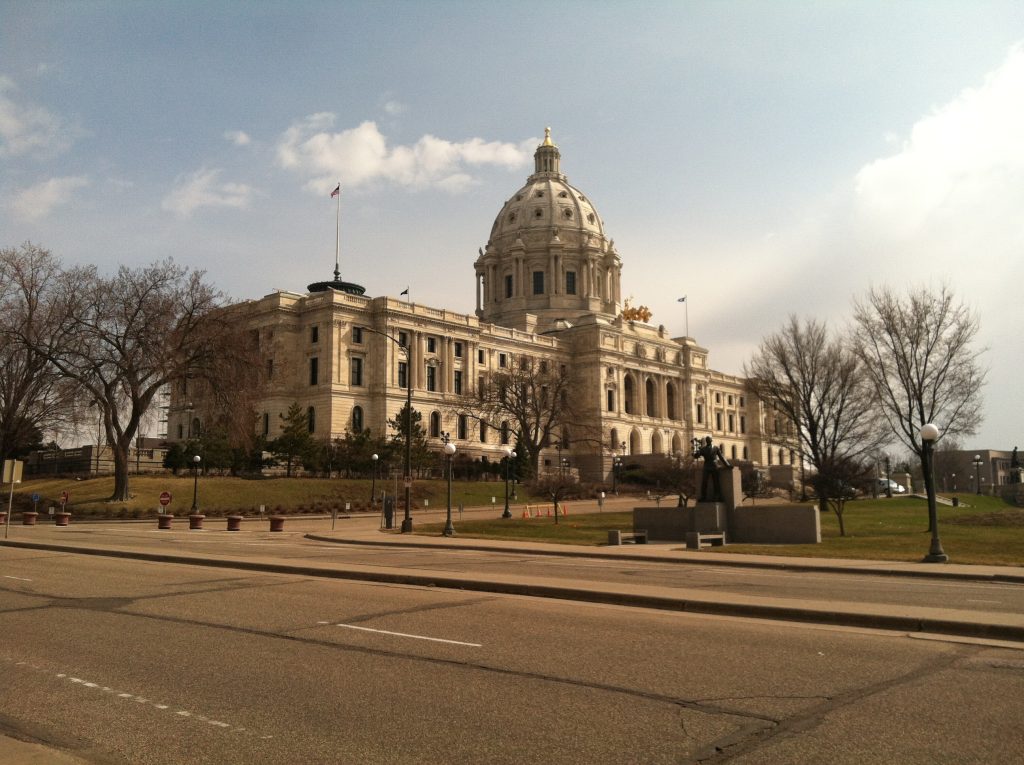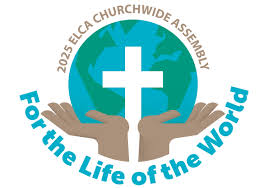DISCIPLESHIP AND MEMBERSHIP: Why ELCA Leadership Struggles
Early on in the current occupation cos-playing as an actual, functional administration … back during the slash-and-burn heyday of Elon Musk and his “Department of Government Efficiency,” Michael Flynn posted something on the X social media platform about Lutheran Social Services (LSS) being a money laundering operation. Elon Musk, owner of the X platform, immediately re-upped the post and promised to look into this.

All of this was just a part of finding targets for – and making excuses for – massive cuts to funding for refugee and asylee resettlement as well as anything else supportive of immigrants. (Of course, the H1B visa program, which is much-used by Musk in his companies as well as many, many other high-tech companies, was specifically spared because this program allows companies to bring in employees from India and pay them less than they would employees who are already US citizens.)
In response to the spurious X post by Michael Flynn, there was something of an outcry in Lutheran circles –specifically ELCA circles – about the baseless accusations as well as recognition that this was solely targeting of resettlement agencies. A number of other traditional/mainline Protestant denominations with similar agencies that do similar work filed a lawsuit to stop the defunding of their refugee/asylee resettlement support operations. The question was asked repeatedly: Why wasn’t the ELCA joining this lawsuit? Many of those asking the question rejected the answer that was given: the polity of the ELCA does not allow national church leadership to sign on to such lawsuits. Hard as that might be for some members to accept, it is the truth of the situation in the ELCA.
Other mainline Protestant denominations use similar leadership titles, such as pastors and bishops … have regional organizations that might be called synods or districts or dioceses. However, the ways in which leadership and governance function are very different for the ELCA than these others. In the ELCA, the membership of the congregations has the real power and, in many ways, ultimate authority. The congregations vote to call (or not to call) a pastor. The regional (synodical) and national assemblies, which elect leadership and vote on policies, are constituted to be majority lay members at both the synodical level and the national level. Synodical and Churchwide councils are required to include lay members as well as members of the clergy. Pastors and bishops can say what they believe … what positions their faith and theological understanding lead them to take. However, ultimately, the lay members decide what they will – and will not – accept. The ELCA is lay-driven, not clergy-led. Members expect the clergy to affirm and support them.

And the sad truth is approximately 50% of ELCA members who voted in 2024 cast their presidential ballots for the current occupant of the Oval Office. Although this might come as a shock to those members – and some of the clergy – who wanted the ELCA to sign onto the lawsuit, it is no surprise to me. I’ve seen this dynamic in action … and the lack of any meaningful action by those designated as leaders.
Back in 2010, providing pulpit supply on the Sunday when the gospel was the Parable of the Rich Man and the Great Harvest (Luke 12:13-21 – which was the assigned gospel for the first Sunday in August this year as well), I employed a parallel between the rich man trying to hoard the bounty of his crops for himself and the way governmental policies thwart immigration from countries to our south … how we are essentially hoarding the bounty of our country and refusing to share with others in need … despite the reality that a number of industries in our country depend on this immigrant workforce.
The sermon was appreciated by a number of people in the congregation, and, yes, they could be labeled liberals or even Democrats. But these were by no means the whole of the congregation. One member, who could be termed conservative, was so upset as to write to the pastor of the congregation, making her case that what I had said was very wrong. She even noted that she had looked at the ELCA website for proofs against what I had said and was somewhat disappointed that what she found there was supportive of my perspective and not her own. However, she concluded (in not quite these words): all of these are wrong and I am still right!
Quite interestingly (and unbeknownst to the congregant), both she and I had lived in the Phoenix, Arizona metro area in the late 1990s when the Chandler suburb instituted an aggressive crackdown on possible immigrants found without proper authorization. The city police were stopping anyone who looked like they might be from Mexico or other Central American countries and demanding that they produce proof of citizenship or authorization to be in the country; those who did not could be arrested on the spot. Police were also reported to be harassing school children on their way home from school, threatening them – or their parents – with arrest for speaking Spanish or just looking Mexican. The congregant who wrote to the pastor described this as the right thing to do. I had lived in nearby Mesa at the time this was happening. Unlike this congregant, I knew this policy in Chandler was wrong — period. Not that we went to Chandler all that often anyway, but my half-Mexican husband and I decided we would not do any business in that municipality so long as this was happening.
At that time, the synodical bishop for the area where I and the other former Arizonan crossed paths in 2010 was part of a team of ELCA bishops organized to advocate for immigrants at the national level. When I mentioned these events, my sermon and the congregant’s letter, he did not offer the level of encouragement or support that I had expected. Instead, the message was “you need to be careful about things like this; you really shouldn’t be upsetting people like that.” Advocacy for a policy position is fine, apparently, so long as it is done in the halls of Congress and the privacy of legislators’ offices. But it is not something to do from a pulpit in the context of a sermon; congregants must feel themselves free to hold whatever political views seem best to them.
When I was on internship and participated in an event by a gun-safety advocacy group to welcome legislators back for the start of session, I wasn’t sure how that might be received by some of the congregants of my internship sites. Blessedly, I only heard positive reactions to that … which wasn’t too surprising and two of the congregations openly supported organizing for social advocacy. However, one of the pastors I worked with admitted that he’d had to wait for a few certain members to die before he could be as open in these areas as he was being at the time (and since then).

There are always risks of offending the wrong people (people a pastor, literally, cannot afford to lose as supporters) when taking a stand on anything of potential controversy. Offend the wrong person(s), and consequences will follow. Supportive members will become very critical if their preferred positions are called into question.
Perhaps an organizer in the community convenes a conversation for local faith leaders on the topic of livable wages. One of the pastors attending provides a few comments to a reporter. Those comments come to the attention of a local host for a talk radio program that functions as the local lead-in to national conservative talk radio. A member hears the pastor words read out in a disparaging way by the host and the host’s accusation: “Clearly, this pastor does not care about our community.” Instead of thinking something along the lines of: Well, I know my pastor does care about us and our community … this host doesn’t know my pastor … maybe the host doesn’t really understand this subject or my pastor knows something that the host isn’t seeing … I should talk to the pastor about the connection between our faith and this issue, the member shares the host’s offense: I can’t believe my pastor would be seen in public taking such a misguided position so as to be subject to this sort of scolding from my favorite host. I better send a message to the pastor that this is NOT acceptable!
A congregant might be thoroughly impressed by a pastor’s demonstrated piety and commitment to practicing the faith in all areas of daily life. However, when the pastor points out the disconnect between the values of the faith, the vision of community described in the gospel and the stated positions, demonstrated actions by a specific political candidate … and then states: I’m not sure one can truly be a Christian and vote for this candidate, the member re-considers that previous assessment of the pastor: How dare the pastor question my voting choices? That piety and dedication I thought I was seeing is clearly a sham. I need to find a different church that is more supportive of my truth.
Yes, I’ve observed both those scenarios happen in real life with people I know.
Last fall, the ELCA Conference of Bishops called on clergy in the church to emphasize the values of integrity, honesty, and factual truth in talking about the 2024 election – and for members to also stand with the bishops and pastors in support of honesty and truthfulness. As always, the statement was carefully worded so as not to be clearly taking a side. However, the situation around this election was apparently dire enough that the bishops saw a need to clearly point toward one side rather than the other:

We, the members of the Conference of Bishops of the Evangelical Lutheran Church in America, speak with one voice to condemn the hateful, deceptive, violent speech that has too readily found a place in our national discourse. We lament the ways this language has led to hate-fueled action.
We refuse to accept the ongoing normalization of lies and deceit.
We recommit ourselves to speaking the truth and pointing to the one who is truth. We find courage in our collegiality and implore the members of the Evangelical Lutheran Church in America, as well as our partners and friends, to join us…
When I saw this statement in a post on the ELCA Facebook page, I asked (with sincerity!) if the bishops were prepared to stand behind the pastors when members of congregations complain that their pastor said it would be wrong to vote for their preferred candidate. I never got a reply … a few “likes,” but no real response to my question. I’m not aware of any situations where clergy followed the bishops’ guidance and then ran afoul of some congregation members – but then, most pastors know their congregations well enough to know when it’s safe to say such things and when there’s risk getting in trouble with key members … so it’s only the newer ones or those who shared the level of the bishops’ concerns who would take such risks. And even if they had, would it really have impacted the thinking and acting of the members?
That may be a demonstration of the greatest failure of the ELCA in all that has transpired in the past twelve months – as well as over decades: We have failed to form disciples of Jesus, people committed to following, as best they can, the way Jesus lived and taught. We have nurtured a collection of members who are seeking affirmation of whatever they already think and believe about God and the world; who want the world and others in it to change – not themselves; who want the reassurance that this world, what happens here, and their roles in it do not matter to God because the only thing that matters is being in heaven when this life is over.
Maybe … just maybe … after the ELCA Churchwide Assembly at the end of July … the actions taken there … maybe winds of change are stirring … and maybe our new presiding bishop will be able take public positions on behalf of our whole church in the months and years ahead – for that is surely needed!

